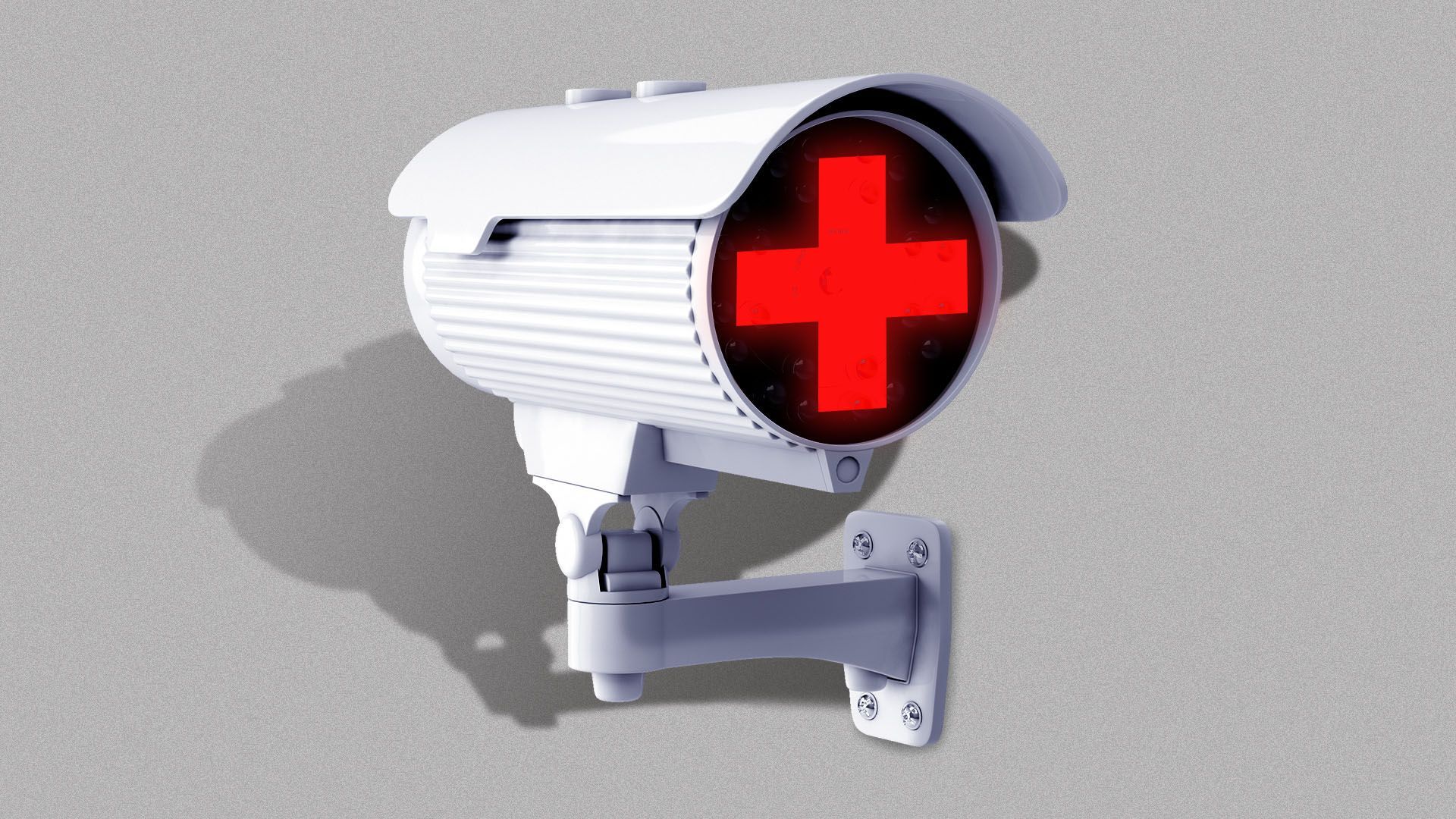Democrats offer public health privacy legislation
Add Axios as your preferred source to
see more of our stories on Google.

Illustration: Sarah Grillo/Axios
A group of House and Senate Democrats on Thursday announced legislation meant to ensure any tech tools used to combat pandemics don't violate Americans' privacy or introduce cybersecurity risks.
Why it matters: Americans report being wary of tech-based systems for coronavirus contact tracing — that is, identifying infected people and isolating those who've come in contact with them. A recent Axios-Ipsos survey found that just half of Americans would participate in a voluntary, cell-phone-based contact-tracing program.
Details: The Public Health Emergency Privacy Act is meant to help increase trust in the use of apps to contain the spread of COVID-19 and future disease outbreaks by:
- Strictly limiting the use of data collected by such apps to public health purposes.
- Mandating the destruction of emergency health data within 60 days of the end of a public health emergency.
- Banning the use of health data for discriminatory or unrelated purposes, such as in advertising, e-commerce or housing and finance opportunities.
- Granting federal regulators the authority to craft additional rules on the use of data and apps in addressing outbreaks and ensuring that states can write their own laws on the same.
What they're saying: The bill is being introduced by Sens. Richard Blumenthal and Mark Warner and Reps. Anna Eshoo, Jan Schakowsky, and Suzan DelBene.
- "It is time for Congress to lead the way in assuring we have a strong national contact tracing system and that Americans’ personal data is protected," said DelBene, who has called on the Trump administration to adopt data privacy principles related to the pandemic. "This bill will achieve this mutual goal.”
Between the lines: The Democrats' legislation is a counter to a bill from Senate Republicans, which is more narrowly focused on the coronavirus pandemic.
